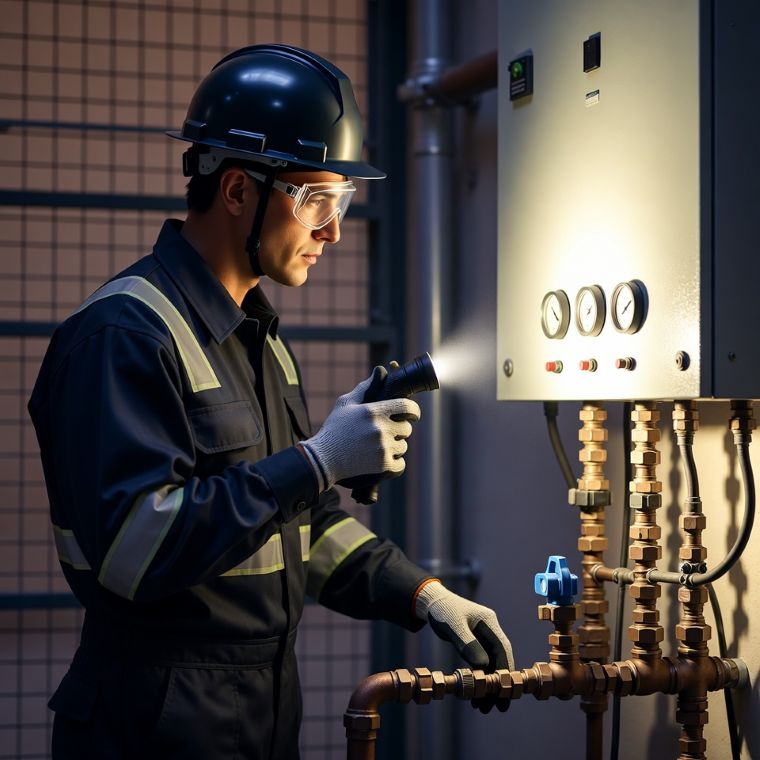6 Signs Your HVAC System Needs Attention Before It Puts Your Safety at Risk

Every year, thousands of homeowners face unexpected breakdowns that could have been prevented with simple maintenance checks. Your heating, ventilation, and air conditioning system works quietly in the background, keeping your home comfortable year-round. But when warning signs go unnoticed, the results can be costly, or even dangerous.
Home maintenance isn’t just about comfort, it’s about safety. A responsible homeowner listens to their HVAC system before it’s too late.
Early detection is key to protecting your home and family. If you notice strange noises, poor airflow, or water leaks, these may be signs your system needs professional care. When such problems occur, it may also indicate issues that require specialized services like boiler repair. Paying attention to small changes today can prevent bigger emergencies tomorrow.
1. Strange Noises That Shouldn’t Be Ignored
Unusual sounds are your HVAC system’s way of calling for help. Grinding, squealing, or banging noises often signal loose parts, worn-out bearings, or debris in the blower. If these sounds persist, they can lead to mechanical failure or overheating. Turn off your system and have a licensed technician inspect it before damage spreads. A quick check can save you from expensive repairs and prevent potential safety risks.
2. Uneven Airflow and Hot or Cold Spots
Uneven airflow means your system isn’t running efficiently. If one room feels stuffy while another is freezing, there may be a blockage in your ducts or a failing blower motor. Clogged filters or damaged vents can also strain your HVAC, forcing it to work harder and use more energy. Regular cleaning, proper insulation, and professional maintenance keep your home evenly heated and cooled, reducing both wear and utility bills.
3. Water Heater Leaks and What They Mean
Even a small leak near your water heater or boiler can be a red flag. Puddles or rust around the base may point to internal corrosion, pressure valve issues, or a failing seal. If ignored, these leaks can lead to flooding or water damage in nearby areas. A trusted technician can assess whether your unit needs repair or replacement. Proper attention to these leaks is part of responsible home safety care.
4. Carbon Monoxide Risks from Poor Ventilation
Few household hazards are more dangerous than carbon monoxide leaks. Poor ventilation or a malfunctioning furnace can allow this odorless gas to build up, putting everyone in the home at serious risk. Symptoms such as dizziness, headaches, or nausea should never be taken lightly. Make sure your home has a working carbon monoxide detector and have your HVAC system inspected annually to confirm that exhaust lines and vents are clear and properly sealed.
5. Rising Energy Bills Without Explanation
Unexplained spikes in your utility bills can signal hidden problems. Dirty filters, leaks in your ductwork, or an aging compressor can make your system work overtime just to maintain a normal temperature. Regular tune-ups and timely boiler repair can restore your system’s efficiency and lower monthly costs. A professional inspection helps identify where energy is being wasted and how to fix it before the next billing cycle.
6. Annual Inspection Checklist for Home Safety
Prevention is always better than a costly emergency. Schedule a full inspection at least once a year, ideally before peak heating or cooling seasons. During this check, technicians should examine your thermostat, clean the coils, test for gas leaks, and inspect your boiler or furnace. Keep an eye on air filters, and replace them every one to three months depending on usage. Consistent care ensures clean air, steady performance, and lower safety risks.
- Check filters monthly and replace when dirty
- Inspect visible ductwork for leaks
- Test smoke and carbon monoxide detectors
- Ensure vents and exhausts are clear of obstructions
- Book professional maintenance before extreme weather seasons
Why Preventive Care Protects More Than Just Comfort
Regular maintenance is an investment in safety, comfort, and peace of mind. A well-maintained HVAC system keeps your indoor air clean and your family safe from hazards like mold growth, electrical issues, and gas leaks. For homeowners who value preventive safety, reviewing resources like key safety features to look for when purchasing patio heaters can also provide helpful insight into maintaining safe heating equipment. Whether you are addressing a minor issue or scheduling boiler repair, taking prompt action shows care for your home and everyone in it. As the saying goes, “An ounce of prevention is worth a pound of cure.”
Small signs can warn you before real damage occurs. Strange noises, uneven temperatures, or subtle leaks may seem minor, but they often point to deeper issues. Staying alert and calling a qualified HVAC professional ensures your system performs safely and efficiently year-round.